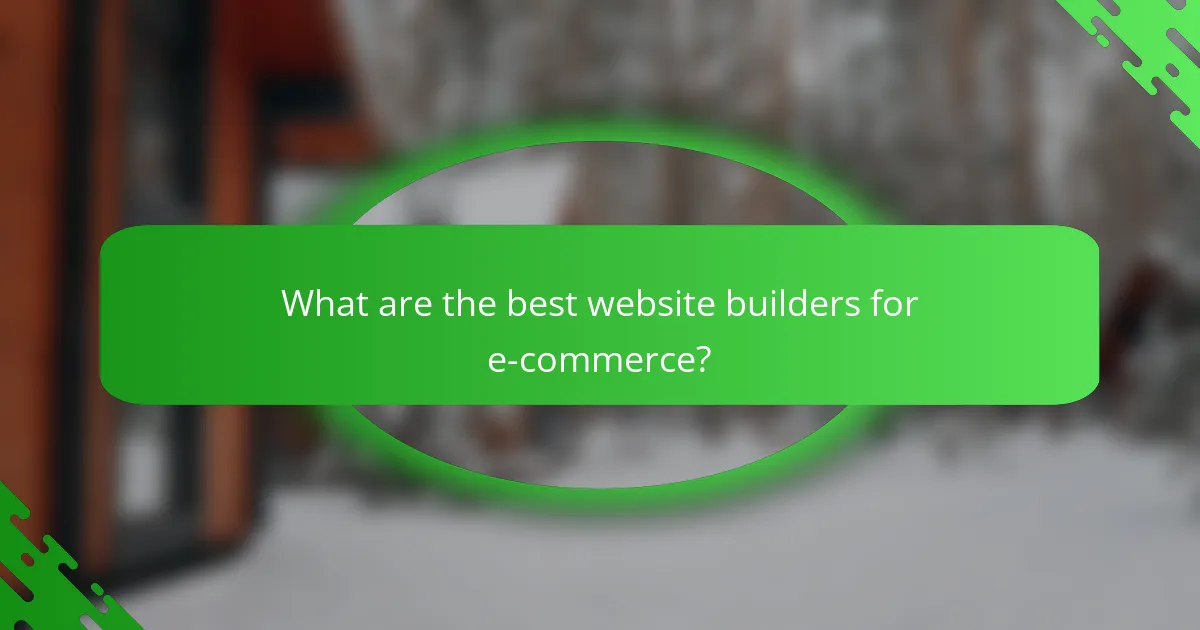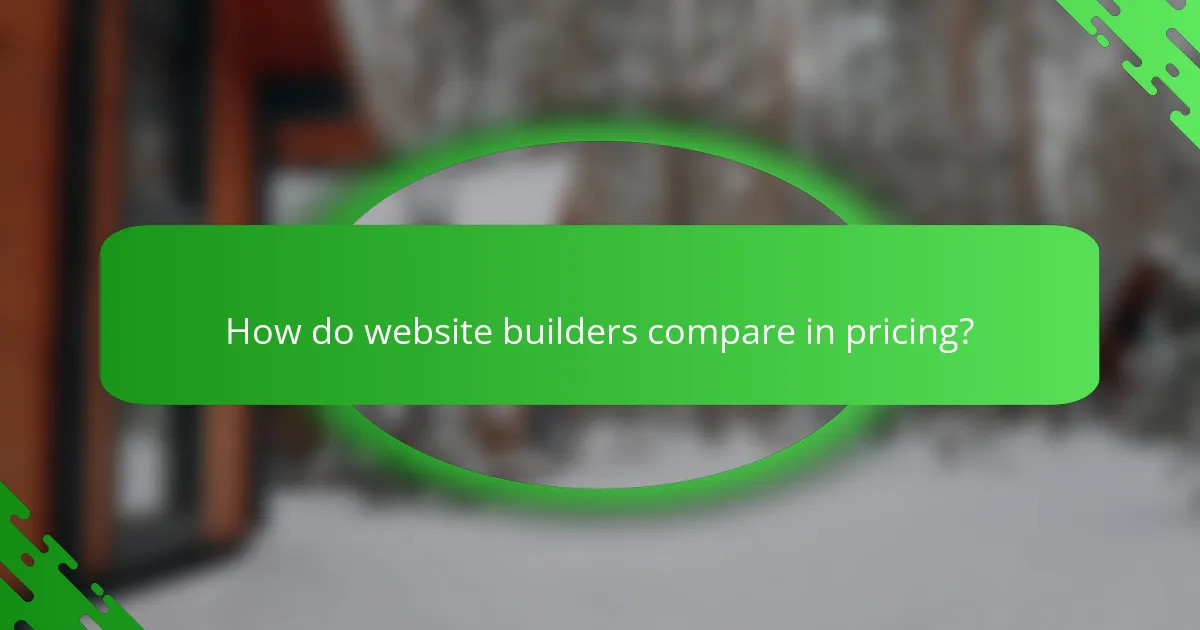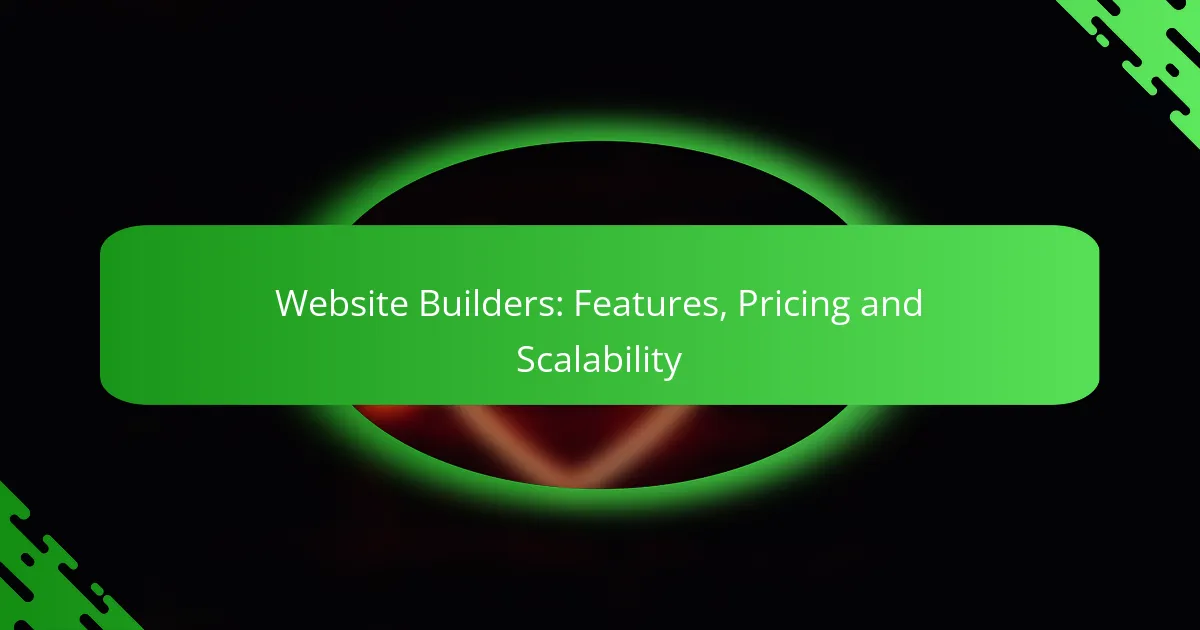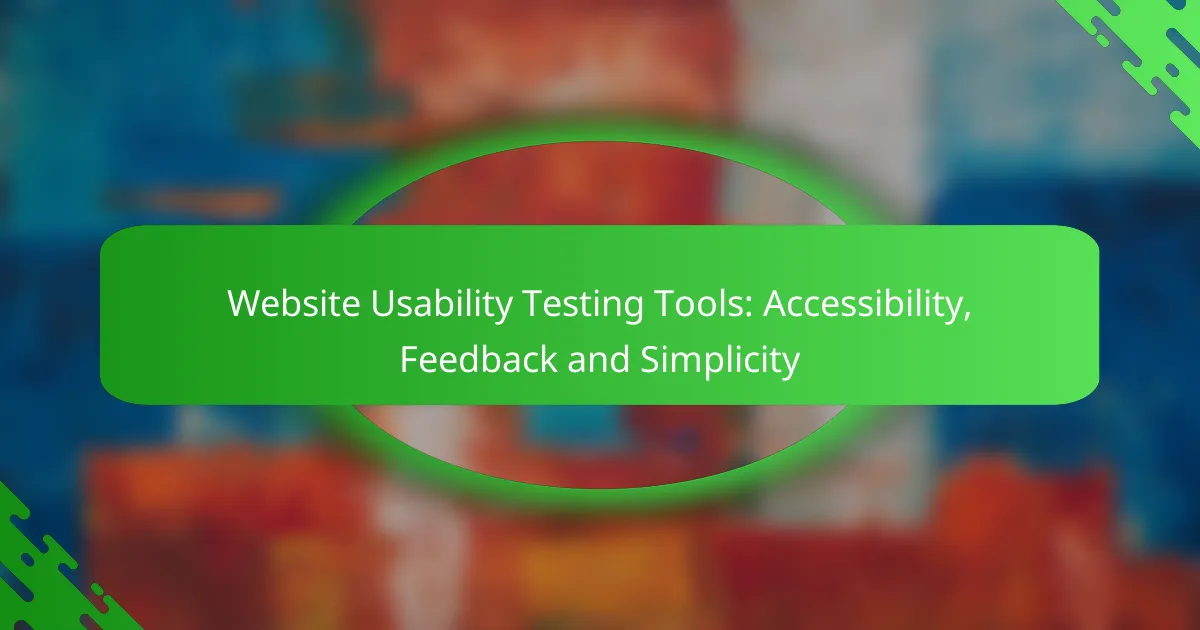Choosing the right website builder is essential for establishing a successful online presence, especially for e-commerce. With various platforms like Shopify, Wix, and Squarespace offering unique features and pricing structures, understanding their capabilities can help you find the best fit for your business needs. Key considerations include user-friendly interfaces, customization options, and scalability to support growth.

What are the best website builders for e-commerce?
The best website builders for e-commerce provide user-friendly interfaces, essential tools for online sales, and scalability options. Popular platforms like Shopify, Wix, BigCommerce, Squarespace, and Weebly cater to different business needs and budgets, making it easier to set up and manage an online store.
Shopify
Shopify is a leading e-commerce platform known for its robust features tailored for online selling. It offers a range of customizable templates, payment gateways, and inventory management tools, making it suitable for businesses of all sizes.
With plans starting from around $29 per month, Shopify provides essential features like abandoned cart recovery and SEO optimization. However, transaction fees may apply if you don’t use Shopify Payments, so consider this when budgeting.
Wix
Wix is a versatile website builder that includes e-commerce capabilities, allowing users to create visually appealing online stores. It features drag-and-drop functionality, making it easy for beginners to design their sites without coding knowledge.
Wix’s e-commerce plans start at approximately $23 per month, which includes features like secure payment options and product galleries. Keep in mind that while Wix is user-friendly, it may lack some advanced e-commerce features found in dedicated platforms like Shopify.
BigCommerce
BigCommerce is designed for growing businesses that need a scalable e-commerce solution. It offers a wide range of built-in features, including multi-channel selling and advanced SEO tools, which help businesses reach a larger audience.
Pricing starts around $29.95 per month, but businesses should be aware of potential limitations on annual sales volume with certain plans. BigCommerce is ideal for those who anticipate rapid growth and require more sophisticated functionalities.
Squarespace
Squarespace is known for its stunning design templates and is a great option for creative businesses looking to showcase their products. It combines e-commerce functionality with beautiful aesthetics, making it suitable for artists, photographers, and boutique retailers.
Plans for e-commerce start at about $18 per month, including features like inventory management and promotional tools. However, Squarespace may not offer as many payment gateways as other platforms, so check if it meets your needs.
Weebly
Weebly is an easy-to-use website builder that offers basic e-commerce features, making it a good choice for small businesses or startups. Its drag-and-drop interface allows users to quickly set up an online store without technical expertise.
Weebly’s e-commerce plans start at around $12 per month, providing essential tools like shopping cart functionality and product management. While it may lack some advanced features, it is budget-friendly and suitable for those just starting in e-commerce.

How do website builders compare in pricing?
Website builders vary significantly in pricing, often influenced by features, scalability, and target audience. Understanding the pricing structures of popular platforms can help you choose the best option for your needs.
Shopify pricing tiers
Shopify offers several pricing tiers designed for different business sizes and needs. Plans typically range from around $39 to $399 per month, with each tier providing varying levels of features such as transaction fees, reporting tools, and support options.
For small businesses, the Basic Shopify plan is often sufficient, while larger enterprises may benefit from the Advanced Shopify plan, which includes advanced reporting and lower transaction fees. Consider your sales volume and required features when selecting a tier.
Wix pricing plans
Wix provides a range of pricing plans starting from approximately $16 per month for the Combo plan to about $45 per month for the VIP plan. Each plan includes different features such as storage limits, bandwidth, and e-commerce capabilities.
Wix’s plans are particularly appealing for individuals and small businesses looking for an easy-to-use website builder. Evaluate your website’s purpose to choose a plan that aligns with your needs, especially if you plan to sell products online.
BigCommerce pricing structure
BigCommerce has a straightforward pricing structure with plans ranging from around $39 to $299 per month. Each plan is tailored to accommodate different sales thresholds and includes features like unlimited products, storage, and support.
For businesses with high sales volumes, the Pro plan offers advanced features such as custom SSL and product filtering. Assess your expected growth and sales to select the most suitable plan for your business model.
Squarespace subscription costs
Squarespace offers subscription costs starting at about $16 per month for the Personal plan and going up to $54 per month for the Advanced Commerce plan. These plans vary in terms of features like e-commerce capabilities, analytics, and customization options.
Small businesses and creatives often find the Business plan adequate, while larger online stores may require the Advanced Commerce plan for more robust selling tools. Consider your website’s goals and required functionalities when choosing a subscription.

What features should I look for in a website builder?
When selecting a website builder, prioritize features that enhance customization, SEO, payment processing, and mobile responsiveness. These elements are crucial for creating an effective online presence that meets both user needs and business goals.
Customization options
Customization options allow you to tailor your website’s design and functionality to fit your brand. Look for builders that offer a variety of templates, themes, and drag-and-drop features to simplify the design process.
Consider whether the platform supports custom CSS or HTML for advanced modifications. This flexibility can be essential for businesses looking to create a unique online identity.
SEO tools
SEO tools are vital for improving your website’s visibility on search engines. A good website builder should include features like customizable meta tags, alt text for images, and built-in analytics to track performance.
Additionally, check if the platform offers guidance on best practices for SEO, such as keyword integration and site speed optimization. These tools can significantly impact your site’s ranking and traffic.
Payment gateways
Payment gateways facilitate online transactions and are essential for e-commerce websites. Ensure that the website builder you choose supports multiple payment options, such as credit cards, PayPal, and local payment methods relevant to your market.
Look for features like secure payment processing and compliance with regulations such as PCI DSS to protect customer data. This is crucial for building trust and ensuring smooth transactions.
Mobile responsiveness
Mobile responsiveness ensures that your website functions well on various devices, particularly smartphones and tablets. A responsive design adapts to different screen sizes, providing a seamless user experience.
Check if the website builder offers mobile-friendly templates and the ability to preview your site on different devices. This feature is increasingly important, as a significant portion of web traffic comes from mobile users.

How scalable are popular website builders?
Scalability in website builders refers to their ability to grow with your business needs, accommodating increased traffic and additional features. Popular platforms like Shopify, BigCommerce, and Wix offer varying levels of scalability, impacting how well they can support expanding online operations.
Shopify scalability
Shopify is designed for scalability, making it suitable for businesses of all sizes, from startups to large enterprises. It can handle thousands of products and high traffic volumes, with plans that allow for increased bandwidth and storage as your business grows.
When scaling with Shopify, consider the costs associated with higher-tier plans and additional apps that may be necessary for advanced features. The platform supports integrations with various payment gateways and shipping solutions, which can enhance your operational capabilities as you expand.
BigCommerce scalability
BigCommerce offers robust scalability features, catering to both small businesses and large corporations. It supports an unlimited number of products and has built-in tools for SEO and marketing, which are essential for growing your online presence.
As your business scales, you may need to upgrade to higher plans to access advanced features like customer segmentation and abandoned cart recovery. BigCommerce also provides APIs for custom integrations, allowing for tailored solutions as your needs evolve.
Wix scalability
Wix is generally more suited for small to medium-sized businesses, with scalability options that may be limited compared to Shopify and BigCommerce. While it allows for a decent number of products and traffic, larger enterprises might find its capabilities restrictive.
For those looking to scale with Wix, it’s crucial to monitor your plan’s limitations on bandwidth and storage. Upgrading to a higher plan can unlock additional features, but businesses anticipating rapid growth may want to consider more robust platforms from the start.



